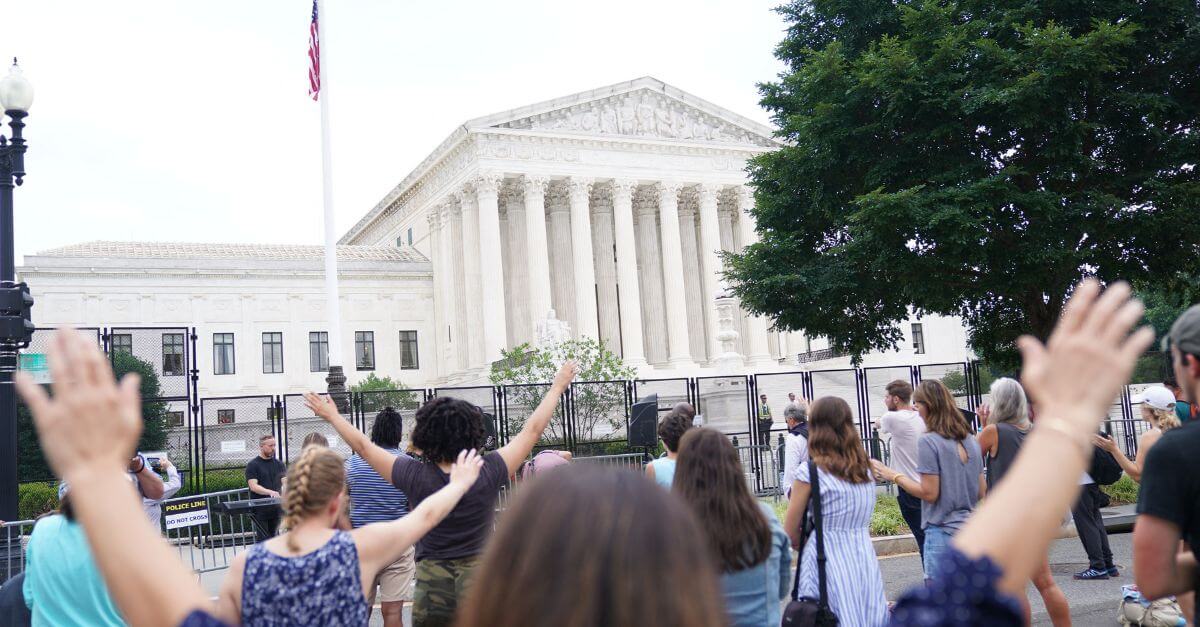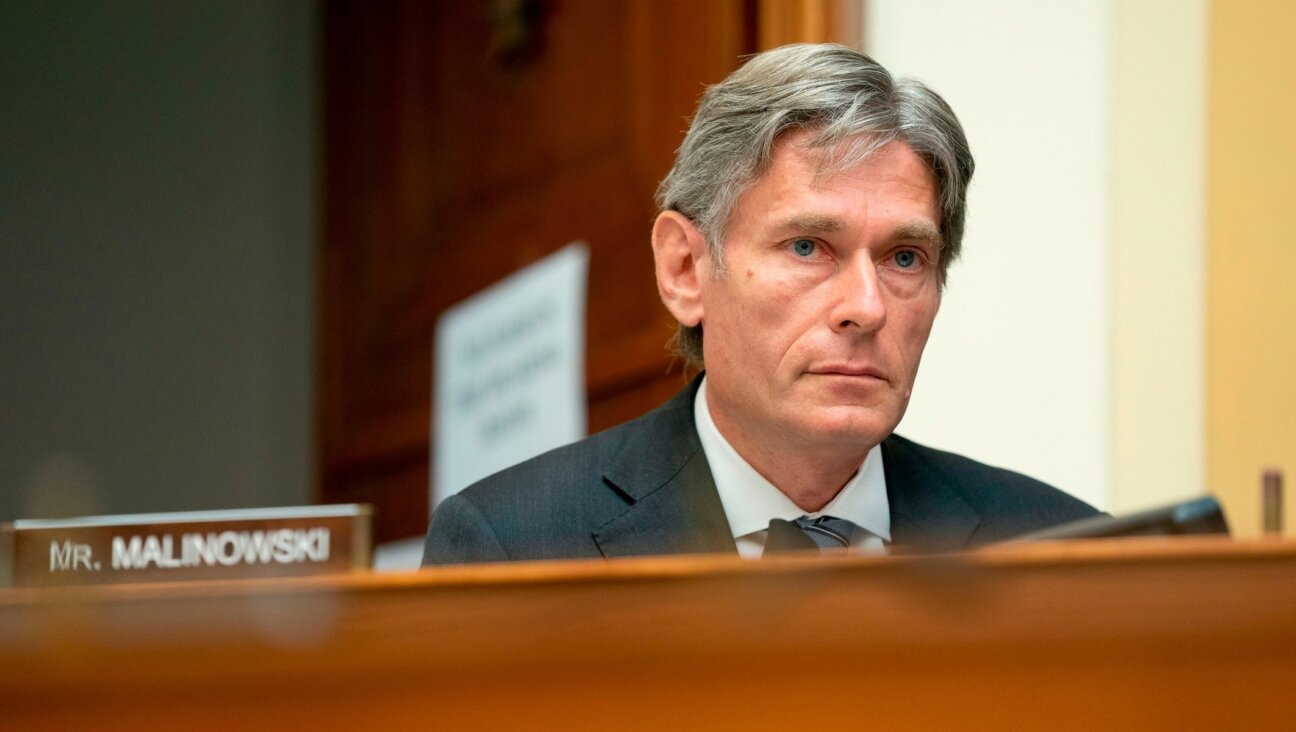‘Who’s a Jew’ Battle Flares In Jerusalem
JERUSALEM — The stage was set this week for a showdown between the Sharon government, the Chief Rabbinate and the Reform and Conservative movements as the long-simmering debate over “who is a Jew” threatened to boil over once again, five years after it was thought to have been laid to rest.
Interior Minister Avraham Poraz, of the anti-clerical Shinui party, called on Sunday for an end to the Orthodox rabbinate’s historic monopoly on conversions to Judaism, telling a Knesset committee that people converted by Reform and Conservative rabbis in Israel should be given equal recognition in the state’s citizenship laws and population registry. He also called on the State Attorney’s Office to weigh in before the Supreme Court on the side of 18 persons who have undergone Reform conversions in Israel and are suing to win recognition as Jews.
Poraz’s proposal was scaled back from an earlier plan to separate citizenship from religion entirely and grant it on the basis of secular criteria. That idea won him a stinging rebuke last week from Prime Minister Sharon, who told Poraz in a face-to-face meeting June 26 that the Orthodox monopoly on conversion for citizenship purposes “must not be changed.”
It was not clear whether the prime minister would actively seek to block the interior minister, who controls citizenship and population registry, from moving forward with his new proposal to recognize non-Orthodox conversions.
Poraz’s proposal is the latest blow to a crumbling compromise hammered out in 1998 by then-finance minister Ya’acov Ne’eman to resolve the decades-old “Who is a Jew” dispute. The Ne’eman plan allowed Reform and Conservative rabbis to participate in training would-be converts, while the actual conversion ceremonies were to be performed by special Orthodox tribunals, operating under relatively lenient rules.
In mid-June, however, the Chief Rabbinate fired the three most lenient rabbis on the conversion tribunals, claiming they had passed the mandatory retirement age. Sources close to the tribunals told the Forward that the dismissals appeared to be part of an attempt by the Orthodox rabbinate to roll back the Ne’eman accords and tighten conversion rules.
Sharon, in his meeting with Poraz last week, insisted that Israel “is a Jewish state and must remain such. Conversion approved in Israel by a rabbinical court under government supervision must bring automatic citizenship.”
At the same time, Sharon also argued that the conversion process itself should be expedited. “Whoever wishes to link his fate with ours should be allowed to do so as quickly as possible,” he said.
The Jewish Agency for Israel, which represents Diaspora Jewish communities within the Israeli political system and operates the joint conversion training program, voted last week at a meeting of its board of governors here to establish a special committee to seek ways of speeding the conversion process. The committee will be chaired by Ne’eman and will include representatives of Orthodox, Conservative and Reform Judaism.
The committee will initially seek to persuade the Chief Rabbinate to adopt more lenient standards in screening potential converts, said Rabbi Richard Hirsch, a Reform representative on the new committee. The committee will argue that many of those seeking to become Jewish — mainly immigrants from the former Soviet Union — are sincere in their quest, even if they do not intend to become Orthodox, Hirsch said.
Sources close to the Chief Rabbinate told the Forward that the three dismissed rabbis would probably be rehired in the coming days. However, there was no indication that the rabbinate was considering easing its rules on conversion.
Poraz’s Interior Ministry operates the national population registry and has the power to determine issues of personal status including citizenship, visas, residence and entry rights. Prior to Poraz’s appointment last spring, the ministry had been controlled for decades by the ultra-Orthodox Shas party.
Under the 1952 Law of Return, Israel confers automatic citizenship on Jewish immigrants. A person with a single Jewish grandparent may immigrate and become a citizen under the law, but is not considered Jewish for purposes of marriage and personal status.
Non-Jews wishing to become Jewish must undergo conversion under the supervision of Israel’s Chief Rabbinate, which is Orthodox-controlled.
Under pressure from the Jewish Agency and other Diaspora groups, Israel decided during the mid-1990s to recognize — for citizenship purposes — conversions performed by Reform and Conservative rabbis in other countries, but not those performed in Israel. That restriction is being challenged in court.
Although Orthodox control of conversion has been challenged in the past, mainly by the American-based Reform and Conservative movements, most of those affected today are Russian immigrants. Of the estimated 1 million Israelis who immigrated from the former Soviet Union during the last decade, some 300,000 are considered non-Jews by the rabbinate. The original Ne’eman plan was seen as a way to speed their entry into the Israeli mainstream by easing conversion to Judaism.
However, during the five years since the accord was reached, only about 500 people have successfully undergone conversion. Another 1,500 have completed studies at the Jewish Agency-run Institute for Jewish Studies, which was created under the Ne’eman plan to oversee the interdenominational training program, but are still waiting to be approved by the conversion courts.
Critics say the delays represent intentional foot-dragging by the Chief Rabbinate, which never formally accepted the Ne’eman plan and generally requires converts to live as Orthodox Jews. “I am telling you that they are doing it on purpose,” said lawyer Gilad Kariv, who represents the Israeli Reform movement on the board of the Jewish studies institute.
“The Orthodox establishment does not want them as part of the Jewish people,” Kariv said, referring to the would-be converts. “They know that they will not be Orthodox Jews. They know that they choose to live in a strict secular lifestyle, and they don’t want to convert them.”
Kariv and others cited obstacles they say the rabbinate places in the path of would-be converts: a demand that they take their children out of public schools and send them to Orthodox schools; that males must agree to put on phylacteries daily and that women not join the army. In some cases, potential converts have been ordered to live on an Orthodox kibbutz or moshav.
“The immigrants from the former Soviet Union are more secular than Israeli secularists,” Kariv said, “so the minute they hear what are the demands of the Orthodox rabbinical courts, they give up the idea of conversion.”
Kariv said that the dismissal of the three liberals from the special conversion tribunals appeared to be part of a broader hardening of lines by the Chief Rabbinate following the election in April of two new chief rabbis who are considered to be allies of the ultra-Orthodox community. He singled out the new Ashkenazic chief rabbi, Yona Metzger, who is described as a protégé of the senior figure in the ultra-Orthodox world, Rabbi Shalom Yosef Elyashiv. He called Metzger “Elyashiv’s slave.”
Kariv said the Orthodox conversion tribunals convert nearly 4,000 people each year, of whom 3,200 are Ethiopian immigrants whose conversion is a formality. The other 800 come from the former Soviet Union. Citing polls that indicate some 100,000 former Soviet immigrants would like to convert to Judaism, he said, “we would need almost 100 years in order to finish the task.”
The leader of Reform Judaism, Rabbi Eric Yoffie, president of the Union of American Hebrew Congregations, called the slow pace of conversion “exceedingly discouraging. The whole legitimacy of the process becomes questionable. It’s a tragedy on every level — a personal tragedy to these people who are open to embracing Judaism, which is something we should encourage, and a tragedy for the State of Israel because it creates these groups that become accustomed to living in their own enclaves at a distance from the general society.”
“This adds one more level to what is already a very serious demographic problem,” Yoffie said. “It’s unnecessary — people who run this program are Orthodox Jews; they firmly believe that this falls within the range of Orthodox practice and beliefs, and there is no reason it shouldn’t be possible for elements in the Orthodox community to be supportive of this and bring it about.”
















